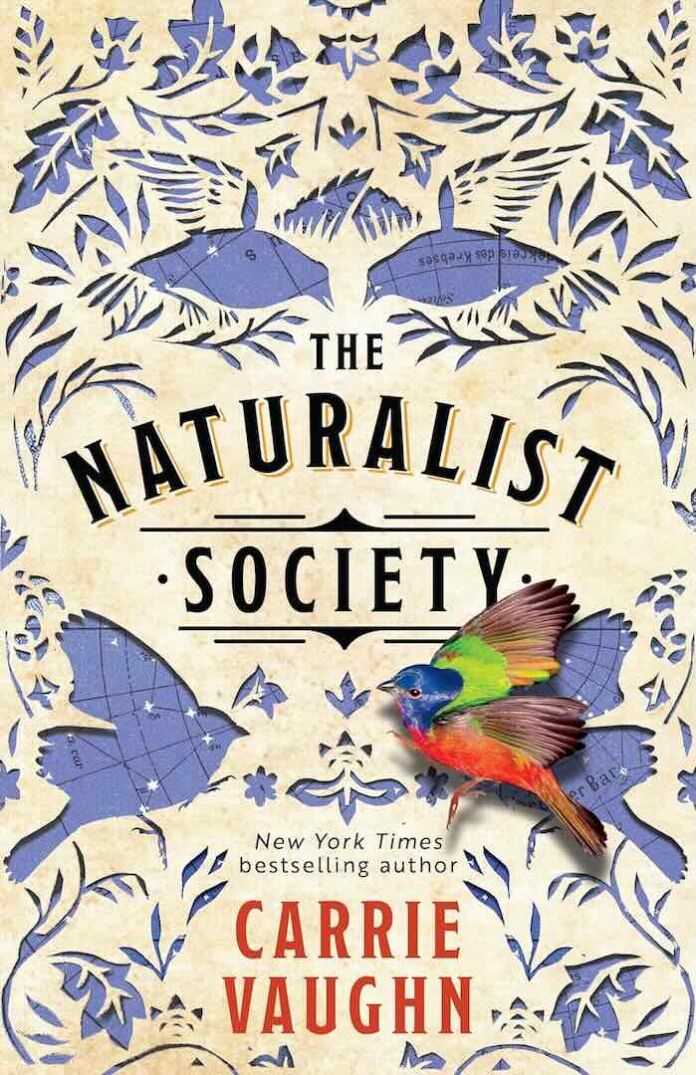The Naturalist Society marks an exciting new direction for New York Times bestselling author Carrie Vaughn, known for her popular Kitty Norville urban fantasy series. In this richly imagined historical fantasy, Vaughn weaves together Victorian-era natural science, forbidden magic, and an unconventional love story that challenges the rigid social constraints of the 1880s.
Setting the Scene: A World Where Science Meets Magic
The novel introduces us to a fascinating alternate history where Carl Linnaeus’s system of taxonomic classification evolved beyond mere scientific categorization into a form of magic called Arcane Taxonomy. Those who master this art can harness the inherent powers of the natural world by knowing and naming its elements. However, in keeping with the patriarchal structures of the time, this power is strictly controlled by male-dominated institutions.
Character Depth and Development
Beth Stanley: A Hidden Light
At the heart of the story is Elizabeth “Beth” Stanley, a brilliant naturalist forced to publish her groundbreaking work under her husband’s name. Vaughn skillfully portrays Beth’s transformation from a seemingly proper Victorian widow into a woman who dares to claim her power and forge her own path. The depth of her character development is particularly evident in her relationship with birds—not just as subjects of study, but as symbols of the freedom she yearns for.
Brandon West and Anton Torrance: Breaking Conventions
The supporting leads, Brandon West and Anton Torrance, are equally well-crafted characters who challenge Victorian social norms in their own ways. Their relationship, while sensitively portrayed, adds layers of complexity to the narrative. West, a talented Arcanist struggling with his own limitations, and Torrance, an explorer facing racial prejudice, bring depth to the story’s themes of identity and acceptance.
Strengths and Notable Elements
Historical Authenticity
- Meticulous attention to period details
- Seamless integration of real historical figures and events
- Authentic portrayal of Victorian scientific discourse
Magical System
- Innovative blend of taxonomy and magic
- Well-thought-out rules and limitations
- Clever integration with actual scientific principles
Social Commentary
- Nuanced exploration of gender roles
- Thoughtful handling of racial discrimination
- Examination of class dynamics in Victorian society
Areas for Improvement
While the novel excels in many aspects, there are a few elements that could have been strengthened:
- The pacing in the middle section occasionally slows, particularly during the detailed descriptions of taxonomic practices.
- Some secondary characters, especially those in the Naturalist Society, could have been more fully developed.
- The resolution of certain plot threads, particularly regarding Beth’s family, feels somewhat rushed.
World-Building Excellence
Vaughn’s creation of an alternate Victorian era where science and magic intertwine is masterfully executed. The attention to detail in describing both the natural world and the workings of Arcane Taxonomy creates a rich, believable setting. The author’s research into nineteenth-century naturalist practices shines through without overwhelming the narrative.
Writing Style and Technical Merit
The prose is elegant and period-appropriate without becoming dense or inaccessible. Vaughn demonstrates particular skill in describing the natural world, making even technical taxonomic descriptions engaging. Her handling of multiple perspectives adds depth to the narrative while maintaining clarity.
Themes and Deeper Meanings
Power and Knowledge
The novel expertly explores the relationship between knowledge and power, questioning who gets to control and benefit from scientific advancement.
Identity and Self-Discovery
Each main character undergoes a journey of self-discovery that challenges societal expectations and personal limitations.
Nature and Humanity
The book raises thoughtful questions about humanity’s relationship with nature and our attempts to categorize and control it.
Comparative Analysis
While The Naturalist Society shares some DNA with other historical fantasies like Susanna Clarke’s Jonathan Strange & Mr Norrell or Mary Robinette Kowal’s Glamourist Histories, it carves out its own unique niche. The focus on natural science and taxonomy sets it apart from more traditional magical systems.
Impact and Relevance
The novel’s themes of gender equality, scientific gatekeeping, and the struggle for recognition remain deeply relevant to contemporary discussions in both scientific and social spheres.
Final Verdict
Despite minor pacing issues, the novel succeeds brilliantly in creating an engaging alternate history that comments meaningfully on both past and present. Vaughn has crafted a story that will appeal to fans of historical fantasy, natural history, and character-driven narratives.
Recommended for:
- Historical fantasy enthusiasts
- Readers interested in Victorian science and society
- Those who enjoy well-crafted magical systems
- Fans of unconventional romance
- Nature and bird enthusiasts
What to Expect:
- Detailed natural history elements
- Complex character relationships
- Thoughtful exploration of social issues
- Rich period atmosphere
- Innovative magic system
Looking Forward
The rich world-building and compelling characters of The Naturalist Society leave readers eager for the sequel, The Glass Slide World. Vaughn has established a fascinating foundation for future exploration of this unique blend of natural science and magic.
In conclusion, The Naturalist Society is a remarkable achievement that successfully combines historical detail, magical innovation, and compelling character development. While not without its minor flaws, it stands as a significant contribution to the historical fantasy genre and marks an exciting new direction in Vaughn’s career.





